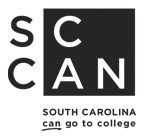OVERVIEW
A lot of students assume that scholarships and grants are set aside for the smartest people in the class. It’s true, many awards are based on good grades, so it doesn’t hurt to do as well as you can in school. But a significant amount of money is available to those who need it — including grants at many schools that are reserved just for students that make the cut and get in. The key to finding what’s out there is persistence. Find a scholarship or grant that fits your interests and goals. And not every program is sponsored by the government, so don’t forget to check out companies, civic organizations and community groups that offer help for students of all backgrounds. If you put in the time to learn what’s out there, you’ll find just how many opportunities there are waiting for students like you. The state of South Carolina offers three merit-based scholarships for residents. These scholarships help students and families each year to access higher education in the state. Click on the program brochures below to learn more about the programs.
Resources:
SCHOLARSHIPS
…money you don’t repay
What can I do to get a scholarship?
Good grades are important if you hope to get a scholarship, even if your family doesn’t demonstrate financial need. When scholarships are awarded on the basis of merit, without regard for need, students who have worked hard will be the winners. You should be persistent and look for scholarship sources in your area. You’ll just need to fill out any required applications on time in order to be considered.
How can I find them?
There are several online search engines that can help you find the right programs for you, but remember to always check with your counselor for the latest scholarships available in your area. Keep an eye on the bulletin boards around school, look for senior newsletters where scholarships are announced — and ask your counselor for the most updated list of local programs.
Most libraries carry scholarship guides. Ask your librarian or guidance counselor for help. You can also check with the colleges you’re applying to. Most college-sponsored scholarships don’t require extra applications beyond their admission and financial aid applications. Just be sure to complete and file the applications on time. Some colleges even offer special scholarships for certain majors that you can apply for in addition to any that are open to all applicants. If you’re employed, check with your employer to see if scholarships are available.
Who offers scholarships?
Many community organizations, churches and clubs offer scholarships. Your high school guidance counselor should be able to help you find them, and can refer you to sponsors who can provide applications and information.
The internet is also a powerful tool in searching for scholarship opportunities. Some sites even allow you to apply online. Unfortunately, many students and their families are falling prey to scholarship scams, so be careful as you search online.
To browse scholarships by category of scholarship you are seeking (e.g. biology, music, law enforcement), go to Federal Student Aid – Scholarship Search.
GRANTS
…money you don’t repay
Federal Pell Grant
Federal Supplemental Educational Opportunity Grant (FSEOG)
Academic Competitiveness Grant (ACG)
The National Science & Mathematics Access to Retain Talent Grant (National SMART Grant)
Federal Pell Grant
non-repaid federal grants awarded only to undergraduate students who have not earned a degree yet
TOTAL AWARD:
For the 2023–24 award year (July 1, 2023, to June 30, 2024), the maximum award will be $7,395. The amount you get, though, will depend on
- your financial need,
- your cost of attendance,
- your status as a full-time or part-time student, and
- your plans to attend school for a full academic year or less.
You may not receive Federal Pell Grant funds from more than one school at a time
WHO CAN APPLY:
Your eligibility will automatically be determined when you complete and submit your FAFSA. If you are awarded a Pell Grant, funds will be sent directly to your school, where they will be applied to your outstanding charges. Any amounts over the outstanding charges will be provided to the student to help with living expenses.
FINE PRINT
The maximum amount of a Pell Grant can change each year and depends on funding. The amount you get, though, will depend not only on your financial need, but also on your costs to attend school, your status as a full-time or part-time student, and your plans to attend school for a full academic year or less.
For more information on Student Financial Assistance Programs, contact the Federal Student Aid Information Center at (800) 4-FED-AID or go to studentaid.ed.gov
Federal Supplemental Educational Opportunity Grant (FSEOG)
a grant program for students with exceptional financial need
TOTAL AWARD:
You can receive between $100 and $4,000 per year, depending on when you apply, your financial need, the funding at the school you’re attending and the policies of the financial aid office at your school.
WHO CAN APPLY:
Your eligibility will automatically be determined when you complete and submit your FAFSA.
FINE PRINT
The Federal Supplemental Educational Opportunity Grant (FSEOG) program is for undergraduates with exceptional financial need as determined by the FAFSA. Pell Grant recipients with the lowest Expected Family Contributions (EFCs) will be considered first for a FSEOG. Just like Pell Grants, the FSEOG does not have to be repaid.
If you are awarded a FSEOG, funds will be sent directly to your school where they will be applied to your outstanding charges. Any amounts in excess of the outstanding charges will be provided to the student to help with living expenses.
For more information on Student Financial Assistance Programs, contact the Federal Student Aid Information Center at (800) 4-FED-AID or go to studentaid.ed.gov

